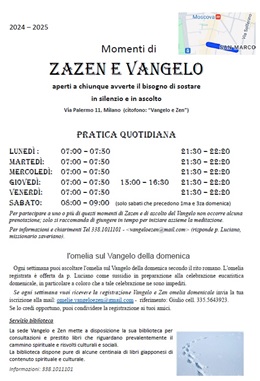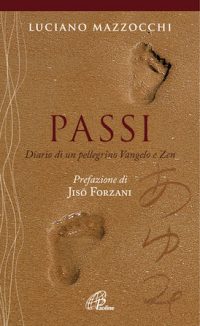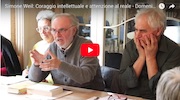* 2. The Silence of Christ In the Eucharist
Silence, as above mentioned, is one suggested form of prayer before the Blessed Sacrament. But too often this brief moment of silence is perceived as a pause in between prayers or a suitable time for meditation and reflection. Which, of course, is all well and good! But there is a much deeper silence, a total silence, such as the silence of zazen, which would bring to a dee per and fuller communion with the “silent Christ” of the Eucharist.
Too seldom do we stop and listen to the silence of Christ in the sacrament of the Altar preserved in the Tabernacle! The eternal Word of God, who became man, and spoke to us to reveal God’s love, God as love, in His death has become silent, and this deep mysterious silence remains ‘audible’ in the sign of his death that is the “breaking of the bread” done in his memory. The Word of God is now silent. The sacrament of his Body is al so the sacrament of his silence. In this silence the Son takes us beyond Himself to the Father. It is the Mission of the Son to lead us and the whole of creation to the Father. Now if the Son is said to be the Word of the Father, the Father can be said to be the silence out of which the Word is spoken. Here our finite human words cannot bear the infinite meaning of divine reality but only vaguely hint at it.
It is the very nature of the Son as Son to be turned towards the Father and to live for Him. It is his mission to turn us with himself to his Father whom he makes our Father through the Spirit. In a way, the Word is turned towards silence, invites us to move with Itself innerly towards this Infinite Eternal Silence that is the Father.
The sacramental silence of the broken bread kept in the Tabernacle of God’s presence to us is an invitation to go beyond all words, all imagination and all images, beyond all that divides or separates, beyond all objects to the perfect communion of life and love, which the mystics have spoken to us about. Through the Son to the Father in the Spirit, that is: through the Word to Silence in Love.
As we have seen above, silence is the deep nature of zazen. Silence of the voice, silence of the mind, silence of our whole being in the self-empying “death” of the ego. It is this deep, radical, total silence which can open our existence, our whole being, emptied of its “own being” (or selfishness), to the perfect communion with the silent Christ of the Tabernacle, sacrament of the Word of God who takes us to the Silence of the Father in a mystical union which is beyond words, images, and all created things. Of this perfect union or communion which only after death will be fully possible to human beings, we can, here on earth, have a foretaste in mystical contemplation. This mystical contemplation, as Fr. Enomiya Lassalle has well described in his book on Zen meditation and Christian prayer, can have in the practice of zazen an excellent preparation and beginning (Lasalle, 107-197).
In this sense, I find the practice of zazen to be a very suitable way of opening our life to the silence of Christ and its mystery, and this form of prayer before the Blessed Sacrament as leading to that contemplation which, according to the teaching of all mystical writers, is the supreme form of all prayer, and, therefore, also of the prayer before the Blessed Sacrament.
| Zazen and Eucharistic Adoration « | » The ‘Great Death’ |





